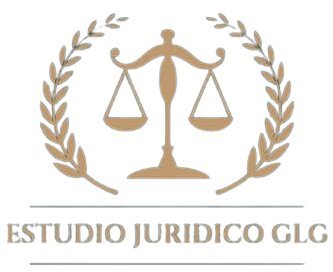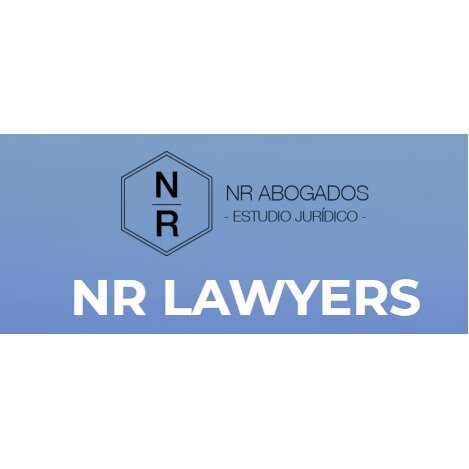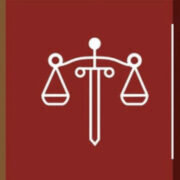Best Family Lawyers in Argentina
Share your needs with us, get contacted by law firms.
Free. Takes 2 min.
Free Guide to Hiring a Family Lawyer
Or refine your search by selecting a city:
List of the best lawyers in Argentina
About Family Law in Argentina
Family Law in Argentina covers a wide array of legal matters related to familial relationships. It encompasses issues such as marriage, divorce, child custody, adoption, and domestic violence. The legal framework is largely governed by the Argentine Civil and Commercial Code, which sets out the rights and obligations of family members under the law. The aim is to protect the family as a fundamental social unit while balancing individual rights and interests.
Why You May Need a Lawyer
There are numerous situations where individuals may require legal assistance in the area of Family Law. Common scenarios include pursuing a divorce or legal separation, resolving child custody or visitation disputes, seeking protection from domestic violence, negotiating spousal or child support, and navigating the legalities of adoption. In these situations, a lawyer can provide essential guidance, ensure your rights are protected, and help to achieve the most favorable outcome.
Local Laws Overview
Several key aspects of Family Law in Argentina are worth understanding:
- Marriage and Divorce: Marriage is a formal union recognized by law. Divorce in Argentina can be filed based on mutual consent or unilaterally. The law provides for equitable distribution of marital property and supports agreements.
- Child Custody: The best interests of the child are paramount in custody decisions. Shared parental responsibility is encouraged unless it is deemed harmful to the child.
- Child and Spousal Support: Both parents are responsible for financially supporting their children. Spousal support (alimony) is considered only if one of the partners is financially weaker and requires assistance post-divorce.
- Adoption: Adoption laws aim to provide a stable family environment for children. The processes are stringent and focus on the welfare of the child.
- Domestic Violence: There are laws in place to protect individuals from domestic abuse, providing options for restraining orders and other protective measures.
Frequently Asked Questions
What are the grounds for divorce in Argentina?
Divorce can be filed based on mutual consent or through a unilateral request. Irreconcilable differences typically suffice as legal grounds.
Can I get full custody of my child?
Custody decisions hinge on the child's best interests. In disputes, courts typically seek to maintain contact with both parents unless harmful to the child.
How is child support calculated?
Child support is based on the child’s needs and each parent's financial situation. Courts aim for a balance that provides adequately for the child while being fair to both parents.
Is an agreement made during separation legally binding?
Yes, agreements made during legal separation can be binding if approved by the court. It's advisable to have a lawyer draft or review such agreements.
What are my rights in case of domestic violence?
Victims of domestic violence can seek protection through restraining orders and legal action. The law provides resources for safety and advocacy.
Can unmarried partners adopt a child together?
Yes, both married and unmarried couples can adopt, provided they meet the legal requirements set out for adoption in Argentina.
How does inheritance work for family members?
Inheritance is typically governed by succession laws, which prioritize spouses and children. A will can specify wishes but must respect obligatory portions to heirs.
What is the process for legally changing my name after marriage or divorce?
The legal name change process involves submitting relevant documentation such as a marriage or divorce decree to the civil registry for processing.
What should I know about pre-nuptial agreements?
Pre-nuptial agreements are recognized and can stipulate property and financial matters. It is key to have them reviewed by a lawyer to ensure legality and fairness.
How long does a typical divorce process take?
The duration varies based on complexity and whether the divorce is contested. An uncontested divorce is quicker, often resolved in a few months.
Additional Resources
For further assistance, consider reaching out to the following:
- Ministry of Justice and Human Rights: Offers legal guidance and resources for family law issues.
- Public Legal Advice Services (Asesoría Jurídica Gratuita): Provides free legal advice in many urban centers.
- National Women’s Institute (INAM): Provides support and information on domestic violence and family issues.
- Local family courts and bar associations: Can provide information on lawyers specializing in Family Law.
Next Steps
If you require legal assistance in Family Law, consider the following steps:
1. Identify your needs: Clarify the legal issue you are facing to better communicate it to a lawyer.
2. Research and consult a lawyer: Look for legal professionals who specialize in Family Law. Initial consultations may help you assess their approach and experience.
3. Gather relevant documents: Compile any necessary legal documents, correspondence, and records related to your situation.
4. Discuss legal fees upfront: Understand the cost structure, whether it is a fixed fee, hourly, or contingent on outcomes.
5. Take action: Work with your lawyer to draft necessary documents, submit applications, and prepare for any required court appearances.
Taking these steps will set you on the right path to resolving your Family Law issues effectively and with expert legal advice.
Lawzana helps you find the best lawyers and law firms in Argentina through a curated and pre-screened list of qualified legal professionals. Our platform offers rankings and detailed profiles of attorneys and law firms, allowing you to compare based on practice areas, including Family, experience, and client feedback.
Each profile includes a description of the firm's areas of practice, client reviews, team members and partners, year of establishment, spoken languages, office locations, contact information, social media presence, and any published articles or resources. Most firms on our platform speak English and are experienced in both local and international legal matters.
Get a quote from top-rated law firms in Argentina — quickly, securely, and without unnecessary hassle.
Disclaimer:
The information provided on this page is for general informational purposes only and does not constitute legal advice. While we strive to ensure the accuracy and relevance of the content, legal information may change over time, and interpretations of the law can vary. You should always consult with a qualified legal professional for advice specific to your situation.
We disclaim all liability for actions taken or not taken based on the content of this page. If you believe any information is incorrect or outdated, please contact us, and we will review and update it where appropriate.
Browse family law firms by service in Argentina
Argentina Attorneys in related practice areas.
Browse family law firms by city in Argentina
Refine your search by selecting a city.
















